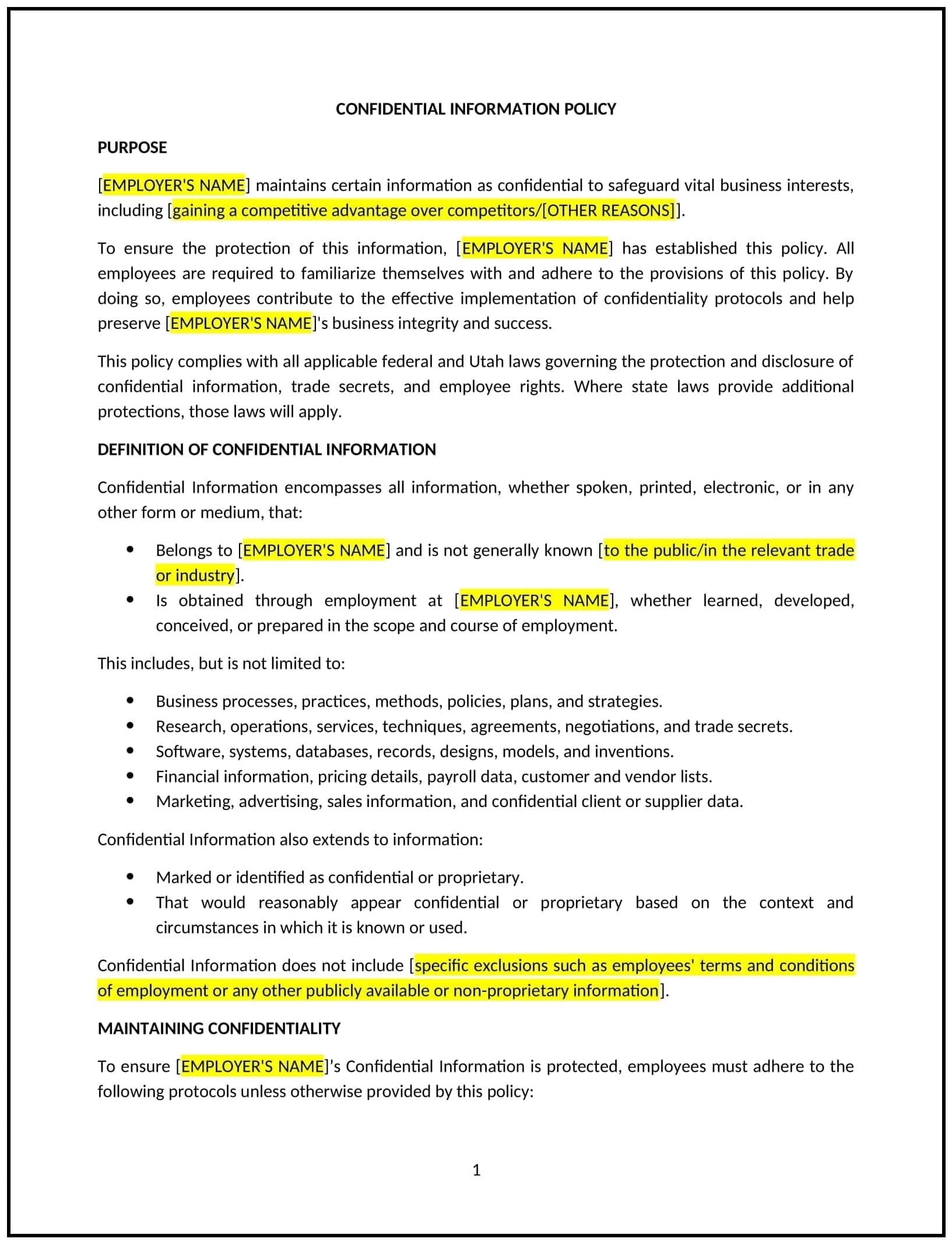Confidential information policy (Utah): Free template
Got contracts to review? While you're here for policies, let Cobrief make contract review effortless—start your free review now.

Customize this template for free
Confidential information policy (Utah)
This confidential information policy is designed to help Utah businesses protect sensitive data, trade secrets, and proprietary information. It outlines guidelines for handling, storing, and sharing confidential information to prevent unauthorized access or disclosure.
By adopting this policy, businesses can safeguard critical assets, maintain customer trust, and align with general best practices for data security.
How to use this confidential information policy (Utah)
- Define confidential information: Specify what constitutes confidential information, such as customer data, financial records, or intellectual property.
- Establish access controls: Limit access to confidential information based on employee roles and responsibilities.
- Outline handling procedures: Provide guidelines for storing, transmitting, and disposing of confidential information securely.
- Address third-party sharing: Define rules for sharing confidential information with vendors, contractors, or partners.
- Train employees: Educate employees on the importance of protecting confidential information and the procedures for doing so.
- Monitor compliance: Regularly review access logs and security measures to ensure adherence to the policy.
- Review and update: Assess the policy annually to ensure it aligns with evolving data security needs and legal requirements.
Benefits of using this confidential information policy (Utah)
This policy offers several advantages for Utah businesses:
- Protects sensitive data: Reduces the risk of data breaches, leaks, or unauthorized access.
- Maintains customer trust: Demonstrates a commitment to safeguarding customer information and privacy.
- Aligns with best practices: Provides a structured approach to managing confidential information securely.
- Reduces legal risks: Helps businesses comply with data protection laws and avoid potential penalties.
- Enhances reputation: Builds credibility by showing stakeholders that the business takes data security seriously.
Tips for using this confidential information policy (Utah)
- Communicate the policy: Share the policy during onboarding and include it in the employee handbook.
- Provide training: Educate employees on handling confidential information securely and recognizing potential risks.
- Monitor access: Regularly review access logs and permissions to ensure only authorized personnel can access sensitive data.
- Update security measures: Stay current with technology trends and update security protocols as needed.
- Address violations promptly: Take action to resolve policy violations quickly and fairly.